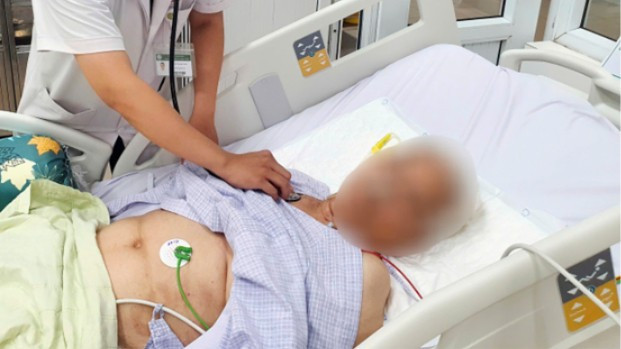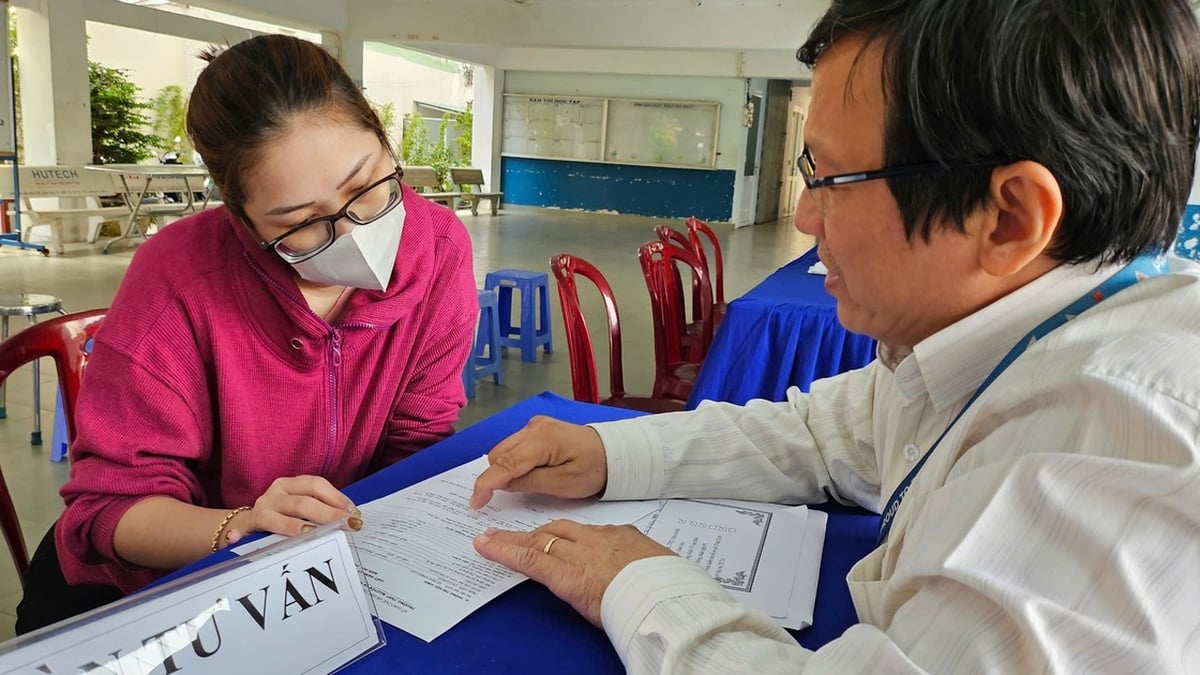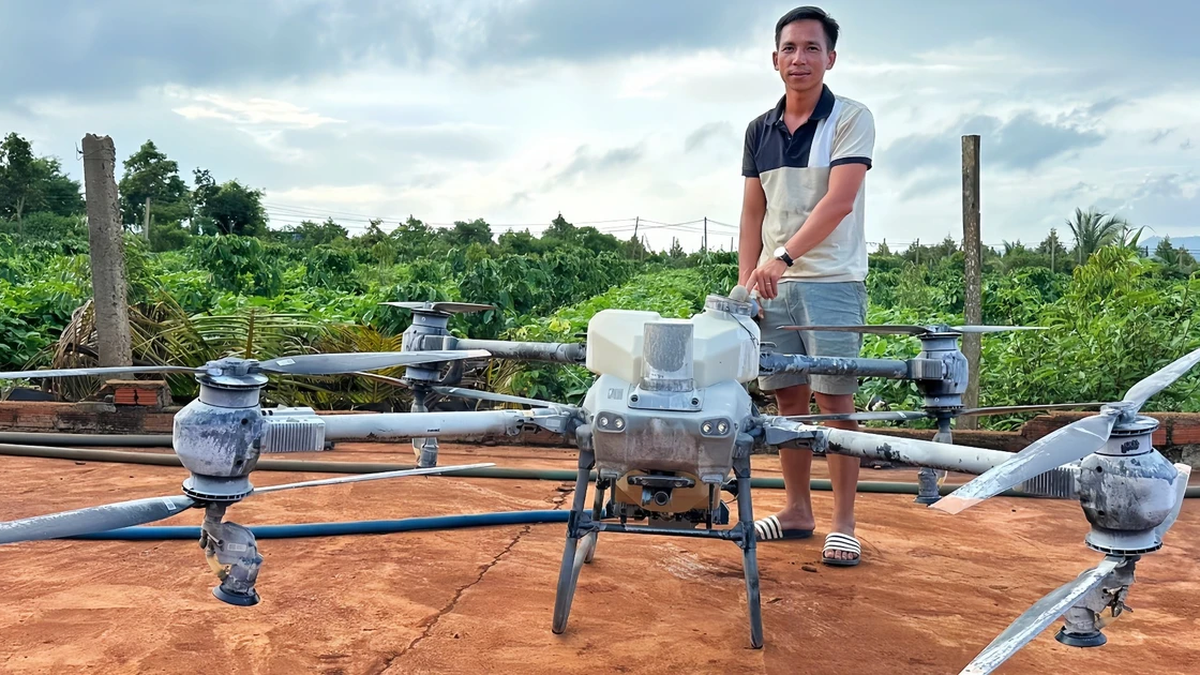Life-threatening tetanus
In daily life, people easily encounter simple injuries, but they can be the source of dangerous diseases such as tetanus.
Every year, the Institute of Tropical Medicine receives dozens of cases of tetanus, most of whom come to the hospital late due to carelessness. Unfortunately, most of them are preventable with vaccines and proper treatment from the beginning.
10 days before being hospitalized, a 90-year-old woman (Chuong My, Hanoi ) was stabbed in the right wrist by a fresh tree branch. The patient applied a plaster and bought antibiotics (unknown type) to treat the wound, causing it to swell and ooze pus. More than a week later, the patient cleaned the wound herself, removed the foreign object (tree branch) from the wound, and the wound gradually dried up.
A few days later, the patient developed pain in the right jaw, poor movement of the right hand, and was diagnosed with tetanus. After 4 days of hospitalization, the patient developed increased muscle tone, jaw stiffness, and pneumonia complications. Currently, the patient is in stable condition, the pneumonia has improved, and the tetanus has passed the dangerous stage.
The second case is a 65-year-old male patient from Thai Binh . Twenty days before admission, the patient fell and hit his hand on a piece of wood, causing a 15cm long wound on his right forearm that bled profusely. The patient treated the wound himself, disinfected it with Betadine, did not suture the wound, and received a tetanus prophylaxis injection.
Penetrating injuries cause severe tetanus.
About 10 days later, the patient experienced jaw stiffness, difficulty speaking, and weakness in his limbs, so he was admitted to the hospital and diagnosed with a stroke. However, a CT scan of the brain did not reveal any abnormalities, so he was discharged for observation.
The patient's jaw stiffness increased, his limbs were stiffer, he was re-examined at the hospital and diagnosed with tetanus, treated with 14 SAT injections, sedated and transferred to Bach Mai Hospital.
At Bach Mai Hospital, the patient had no edema, no gastric bleeding, the wound was 2cm wide, the wound on the right forearm was dry, no discharge, and had a black scab.
During the night of admission to the Institute of Tropical Medicine, Bach Mai Hospital, the patient developed complications of increased body stiffness leading to chest tightness, difficulty breathing, respiratory failure and an emergency tracheostomy was performed. Currently, the patient is breathing on his own, the stiffness has decreased but muscle tone is still increased.
Do not ignore open wounds
Associate Professor, Dr. Do Duy Cuong, Director of the Institute of Tropical Medicine, Bach Mai Hospital, said that tetanus is a dangerous acute infection caused by the neurotoxin of the bacterium Clostridium tetani - a type of bacteria that commonly exists in the environment of soil, animal feces, rusted metal, rotten wood...
When entering through open wounds, especially deep puncture wounds or those that are not properly cleaned, bacteria can produce a powerful toxin that enters the bloodstream and travels to neuromuscular junctions, increasing the level of excitatory transmission, causing muscle spasms and convulsions.
Regarding clinical symptoms, after about 1-2 weeks of injury, the patient will show early symptoms: stiff jaw, difficulty chewing and swallowing, progressive muscle stiffness, increased muscle tone throughout the body, severe convulsions, body bending, accompanied by difficulty breathing, respiratory failure, and autonomic nervous system disorders.
"If not treated promptly with active resuscitation measures, it will quickly lead to death or complications in the cardiovascular, respiratory, urinary, digestive, and skeletal systems," said Dr. Cuong.
According to this expert, tetanus is not a contagious disease, but it progresses very quickly and is dangerous. Just a small scratch or puncture wound, if the patient does not treat it properly or get vaccinated properly, can also cause infection. The mortality rate is very high if not detected and treated promptly.
People at high risk of contracting tetanus are: Farmers and workers who have not been vaccinated against tetanus and are exposed to soil, mud, wastewater, livestock and poultry farming environments, and construction sites. Newborns whose mothers were not vaccinated against tetanus during pregnancy. In addition, neonatal tetanus can be transmitted through unsterilized medical instruments when cutting the umbilical cord of the baby. This is a very severe form of tetanus with a high mortality rate.
Currently, treatment of tetanus requires intensive resuscitation, mechanical ventilation, the use of antitoxin, antibiotics and seizure control. This process is long, expensive and has many potential complications. Meanwhile, prevention through full vaccination is easy and effective in the long term.
Therefore, Associate Professor, Dr. Do Duy Cuong emphasized that all adults should get a tetanus booster shot every 10 years. Especially farmers, manual laborers, mechanics, carpenters... are all at high risk.
Children are protected against tetanus from 2 months of age with a 6/1 vaccine dose (following specific instructions from the health authority). Pregnant women need to be vaccinated against tetanus at the right time of pregnancy. In addition, when there are scratches or wounds caused by foreign objects, people need to go to a medical facility to be properly disinfected and assessed for risk, and vaccinated if necessary.
TRAN LAM
Source: https://nhandan.vn/vet-thuong-do-di-vat-dam-gay-ra-uon-van-nang-post887415.html
























































![[Maritime News] Container shipping faces overcapacity that will last until 2028](https://vphoto.vietnam.vn/thumb/402x226/vietnam/resource/IMAGE/2025/7/30/6d35cbc6b0f643fd97f8aa2e9bc87aea)













































Comment (0)